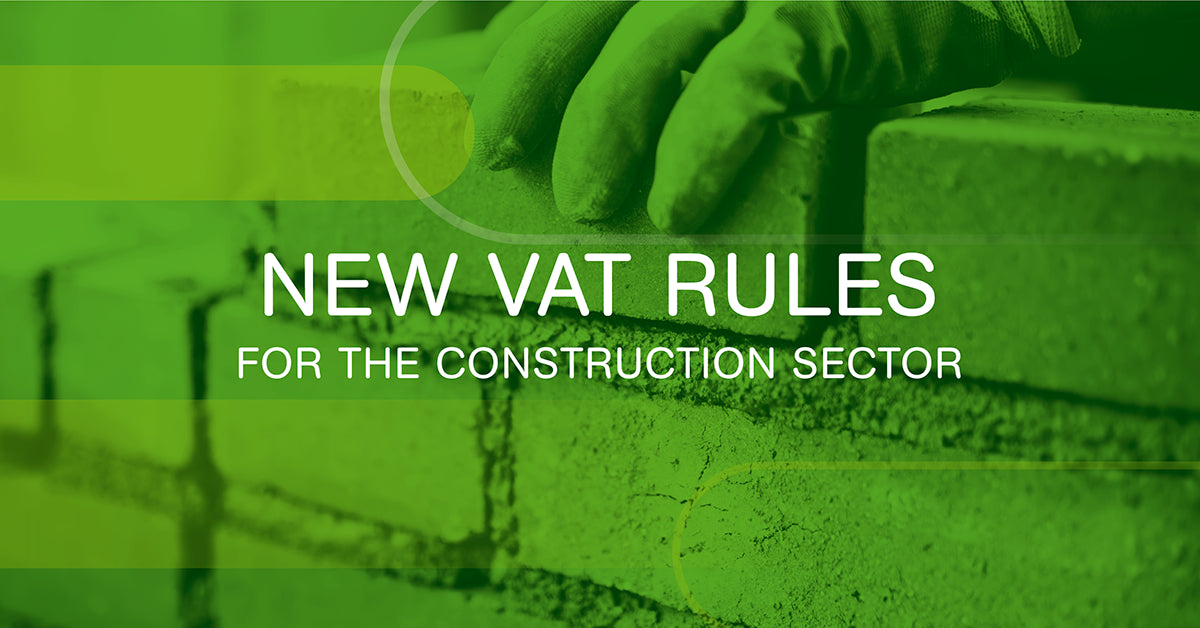
A new arrangement for VAT in the construction industry will be introduced from 1st March 2021.
The domestic reverse charge will be introduced without a transitional period and will have a significant impact on the accounting practices and cash flow of businesses in the construction sector.
In summary, for services a CIS registered sub-contractor provides, they will require the contractor engaging them to handle and pay the VAT directly to HM Customs.
Background
The aim of this measure is to combat VAT fraud in the construction sector, known as missing trader fraud, charging VAT on the sale of goods, and then instead of paying this over to HM Customs, simply absconding with the VAT.
Under the new regime, a VAT-registered business, which supplies certain construction services to another VAT-registered business for onward sale, will be required to issue a VAT invoice stating that the service is subject to the domestic reverse charge.
However, it is the recipient that must account for the VAT due on that supply through its VAT return, at the appropriate rate, instead of paying the VAT amount to the supplier. The recipient may recover that VAT amount as input tax, subject to the normal rules. This would normally mean a nil net tax position with no VAT being due to HMRC.
Which services will it apply to?
The new domestic reverse charge will apply to supplies of ‘specified services’ between VAT registered businesses where the recipient then makes an onward supply of those specified services.
Specified services are generally services that are defined as construction operations for purposes of the Construction Industry Scheme (CIS). Among those included:
- Construction, alteration, repair & extension.
- Painting & decorating
- The demolition of buildings
- Civil engineering & groundwork
- Installation of heating, lighting and air-conditioning.
Some services will not fall within the scope of the domestic reverse charge; however, where there is a reverse charge element in a supply then the whole supply may be subject to the domestic reverse charge.
The domestic reverse charge will apply to specified services unless:
- The services are supplied to an end user, such as the property owner, or directly to a main contractor that sells or lets a newly completed building
- The recipient makes onward supplies of those construction services to a connected company
- The recipient is not VAT registered, or required to be VAT registered
- The recipient is not registered for the CIS
- The supplier and recipient are landlord and tenant or vice versa, or
- The supplies are zero-rated.
An end user is a person who receives the specified services for any purpose other than making an onward supply of those services.
Where goods and building materials are provided together with construction services and in the course of the construction work, then the reverse charge also applies to these goods. There are likely to be cases where it is difficult to determine if there is a separate supply of goods that is excluded from the reverse charge, or whether they are to be included as part of a single supply of construction services. In these cases, a business will need to consider the position further to ensure the correct VAT treatment.
Invoices
Invoices for services subject to the domestic reverse charge must include all the information required on a normal VAT invoice. However, they must make it clear that the domestic reverse charge applies and that the customer is required to account for the VAT.
Impact on construction businesses
Construction businesses will need to ensure their accounting systems are capable of processing reverse charge supplies and make ongoing checks to ensure that supplies and purchases are correctly treated.
As the VAT amount must still be shown on invoices subject to the domestic reverse charge, the risk that suppliers will account for the VAT to HMRC in error and customers will recover it from HMRC is clear.
Subcontractors that rely on VAT collected from their customers as working capital until they have to remit it to HMRC are likely to suffer from the loss of cash flow. These businesses and even their customers will need to consider if payment terms need to be revisited to avoid problems in the supply chain.
Subcontractors will also need to confirm that they are working for a VAT registered business and whether they are working for an end user, or for someone connected to an end user, including landlords and tenants.
Subcontractors must not enter any output tax on sales under the reverse charge. The subcontractor only needs to enter the net value of the sale.
For contractors who operate the reverse charge, you must enter the VAT charged as output tax on your VAT return, but make sure that you do not enter the net value of the purchase as a net sale.



